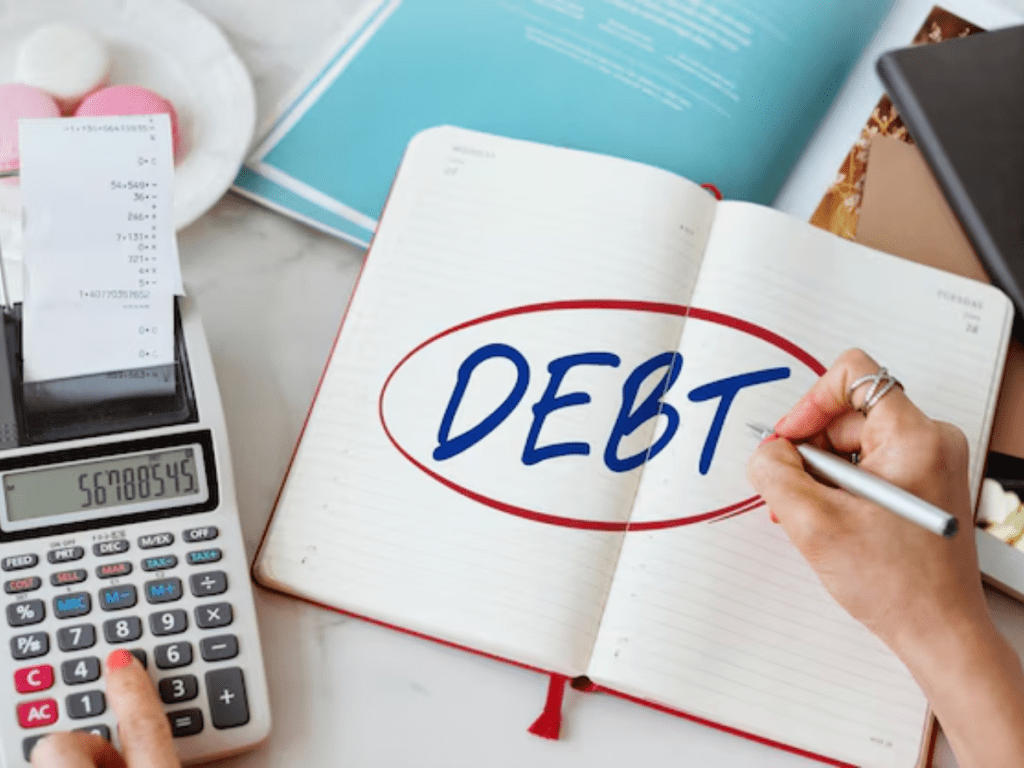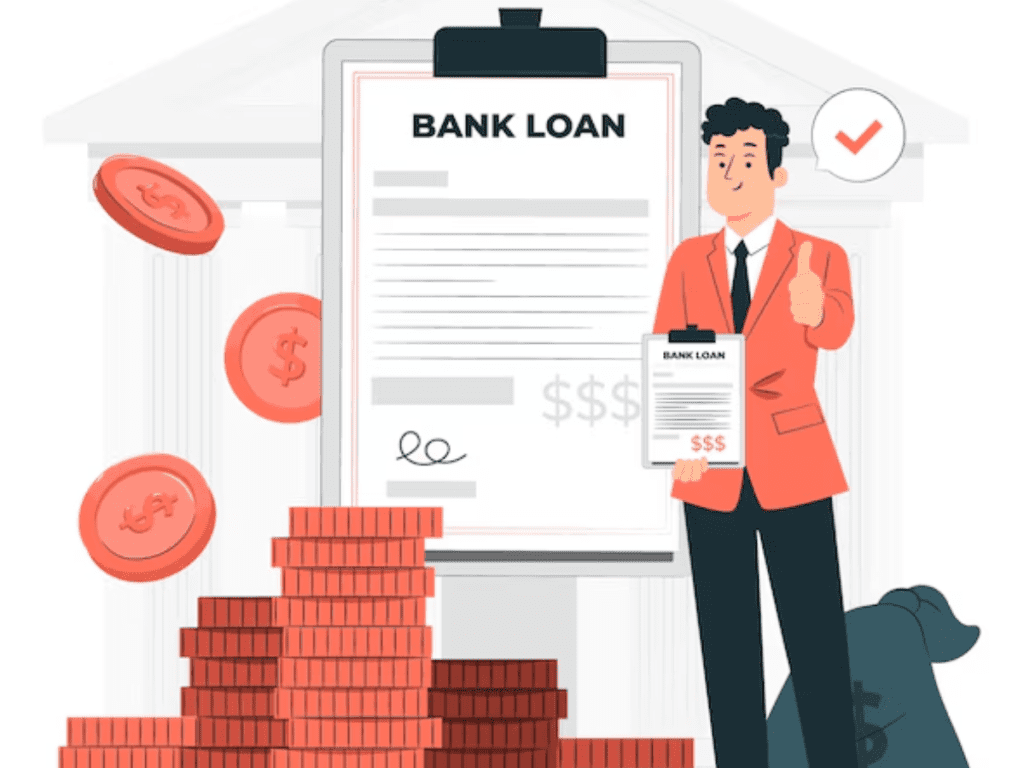Introduction
Defaulting on a loan can be one of the most challenging financial situations a person can face. Whether it’s due to unexpected job loss, medical emergencies, or mismanagement of finances, defaulting on a loan has significant consequences that can hurt your credit score, making it more difficult to access future credit at affordable rates. The good news is that although defaulting on a loan hurts short term, it is very possible to restore your credit score and better your financial health with the proper actions. Restoring your credit is a matter of taking time, patience, and planning, but it can be achieved with dedication and a firm commitment to your financial goals.
This article delves into the most important steps you can take to restore your credit score when you have defaulted on a loan, offers advice on how to manage your debt, and gives you an overview of the wide-ranging effect loan defaults can have on your future finances.
What Is Loan Default, and How Does It Affect Your Credit?
Before we jump into how to restore your credit, it’s helpful to know what happens if you default on a loan and how it impacts your fiscal well-being.
Loan default happens when you don’t comply with the loan terms, usually by not making payments for an extended period of time. For most loans, this means missing payments for anywhere from 90 to 180 days, depending on the lender’s terms. Missing a loan payment can have serious implications in the form of late charges, penalties, and collection actions. Such occurrences can devastate your credit score and increase your chances of missing payments again in the future.
Consequences of Defaulting on a Loan
- Adverse Effect on Credit Score: When you default on a loan or fail to make payments, this data is sent to the three big credit bureaus: Equifax, Experian, and TransUnion. Your payment history accounts for most of your credit score, so defaulting on a loan can lower your score by dozens or even hundreds of points, depending on how behind you were on payments and how much the loan was for.
- Collection Activities: After defaulting on a loan, your lender might send your account to a collection agency in an attempt to recover the debt. This could lead to harassing phone calls, persistent letters, and a possible legal case, which further damages your credit score.
- Increased Interest Rates in the Future: Being in default on a loan decreases your credit score, and this can increase the difficulty of getting approved for future credit cards, loans, or mortgages. Even if you do get approved, you could be offered loans with significantly higher interest rates, increasing the cost of borrowing.
- Risk of Foreclosure or Repossession: For secured loans, e.g., mortgage or car loan, failure to repay could lead to the foreclosure of your house or repossession of your vehicle. This may cause the permanent loss of useful assets and considerable financial distress.
- Possible Legal Action: If the lender cannot recover the loan amount, they can take legal action against you. This may lead to wage garnishments, bank levies, or other legal actions.
Recognizing these outcomes emphasizes how important it is to act quickly if you’ve defaulted on a loan. The sooner you start trying to remedy the situation, the sooner you can begin improving your credit.
How Long Does It Take to Rebuild Your Credit?
Recovering from loan default is not instantaneous. It can be months or even years before you are able to repair your credit rating based on how bad the default was, what kind of loan it was, and how diligently you continue with steps towards fixing your credit record. At an average rate, it will be between three and five years before the impact of a loan default is completely erased from your record. However, through diligent actions, you can start seeing improvements within a year or two, which will ultimately help improve your financial standing and create opportunities for better credit terms in the future.
Steps to Rebuild Your Credit Score After Loan Default
Rebuilding your credit rating after loan default involves disciplined financial management. The following are the key steps you need to take to be back on track and regain your creditworthiness:
1. Check Your Credit Report for Accuracy
The most important first step towards rebuilding your credit is knowing where you stand. You are entitled to a free credit report annually from each of the three major credit reporting agencies (Equifax, Experian, and TransUnion). Check your credit report thoroughly for any errors or discrepancies. At times, errors like late payments, incorrectly reported defaults, or debts that have already been settled may show up on your credit report. These mistakes can damage your credit score unnecessarily, so you should dispute any errors at the earliest.
If you spot discrepancies, you can dispute them with the credit bureaus, and they have to investigate and fix the mistake within a specific timeframe. Having your credit report error-free can immediately improve your credit score.
2. Catch Up on Missed Payments
If you’ve missed payments on your loans, catching up as soon as possible is essential. While this won’t automatically remove the default status from your loan, it will stop the damage from worsening and prevent your lender from sending your account to collections. Contact your lender to discuss repayment options and create a plan to get back on track. In most situations, lenders are also ready to cooperate with you in creating a new payment plan should you communicate and be proactive about your financial situation.
Should you have numerous loans in default, address the most critical debts first—usually high-interest loans or loans that are collateralized (e.g., mortgages or automobile loans) to prevent foreclosure or repossession.
3. Build a Payment History Using a Secured Credit Card
One of the best methods for beginning to rebuild your credit is by acquiring a secured credit card. Unlike a normal credit card, which extends credit based on your creditworthiness, a secured card requires you to make a deposit in advance as collateral. The deposit usually becomes your credit limit, meaning you are less likely to overuse your credit.
Paying with a secured card in a responsible manner is an excellent means of rebuilding a good payment record. Use the card for regular, small purchases and pay the balance off in full each month to prevent paying interest charges. The timely payments will be reported to the credit bureaus and will help raise your credit score over time.
4. Consider a Credit-Builder Loan
Credit-builder loans are made available to those who have poor or limited credit history. The credit-builder loan operates differently than the regular loan because the lender puts the amount of the loan into a savings account and you make monthly payments while it’s in the account. Once you have paid for the loan, the money is deposited into your hands. The payments are recorded in the credit bureaus so that you build a good credit record.
This may be a especially useful alternative if you don’t qualify for an ordinary loan or credit card based on the default on your former loan. Credit-builder loans are available from some banks, credit unions, and community lenders.
5. Make Automatic Payments to Avoid Being Late
One of the most frequent causes of defaults is payment omissions. Automate payments on your credit cards and loans so you will never be late on a payment. Automatic payment facilities are provided by most lenders and banks, which will make payments from your bank account automatically, and you will never have to remember making a payment. Timely payments are vital for improving your credit and not further lowering your credit score.
6. Lower Your Credit Utilization
Credit utilization—the amount of available credit you’re using relative to your available credit—is an extremely important indicator of your credit score. If you’ve had high levels of credit card debt in the past, attempt to lower the amount of credit that you use. You want to keep your credit utilization below 30% of available credit.
If you already have high balances on your existing credit cards, focus on paying off the debt as soon as possible. You might consider transferring high-interest debt to a 0% balance transfer card, rolling your debt into a personal loan, or using a debt management program if you require further assistance.
7. Don’t Take on New Debt
While you’re focusing on rebuilding your credit, try to avoid taking on new debt unless absolutely necessary. Applying for new credit can cause your score to drop temporarily due to hard inquiries, and adding more debt could make it harder to pay off existing balances. Limit credit card applications and loan requests until you’ve made significant progress in improving your credit score.
8. Be Patient and Consistent
Rebuilding your credit rating after defaulting on a loan is a slow process that requires time. Be patient and remain consistent in your efforts to rebuild your credit. Keep making timely payments, pay down your debt, and check your progress from time to time. With time, the effect of the default will fade away, and your credit rating will start to improve.
9. Seek Professional Help if Necessary
If you’re overwhelmed or uncertain about how to restore your credit, engaging a credit counselor or financial advisor may be a smart move. These experts can assist you in developing a strategy, negotiating with creditors, and better managing your finances. One of the best resources for help are credit counseling agencies that provide free or low-cost services to debtors and consumers with credit problems.
Final Thoughts: Restoring Your Financial Health
Restoring your credit after a defaulted loan is certainly tough, but it’s not insurmountable. Using the right approaches, persistence, and patience, you can rehabilitate your credit score and improve your financial well-being. Begin by checking your credit report, bringing payments current, and applying such tools as secured cards and credit-builder loans to restore your credit history. Keep track of your progress, remain steadfast in your commitment to on-time payments, and remain patient as your credit score steadily recovers.
Keep in mind that defaulting on a loan does not have to forever dictate your financial path. By taking these steps and making sound financial choices going forward, you can take control of your finances again, become more eligible for better credit options, and strive towards an improved financial future.

